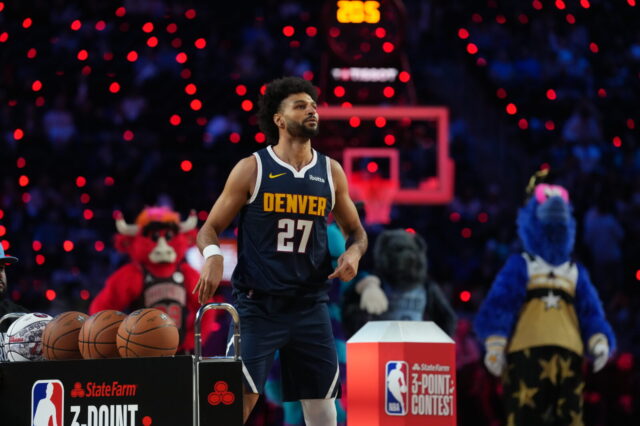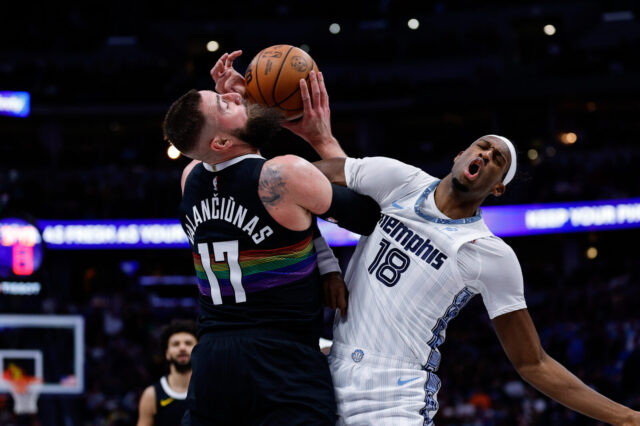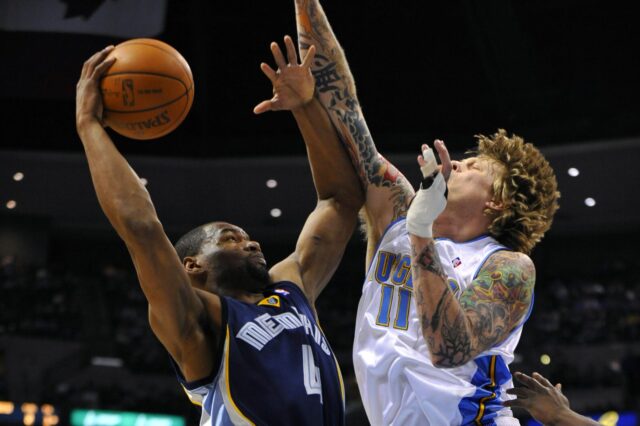According to Zach Lowe of ESPN, the Cleveland Cavaliers wanted Jamal Murray, Wilson Chandler and a first round pick for Kyrie Irving. Apparently, the Denver Nuggets balked at the asking price. Lowe states:
Denver never ventured nearly that far. There are obvious reasons for their reluctance: Irving's free agency in 2019, the Golden State Warriors, the challenge of building a defense book-ended by Irving and Nikola Jokic, the expense of an Irving-Jokic-Gary Harris core. (Jokic's defensive deficiencies have been overstated.) Cleveland may have concluded that package didn't bring LeBron enough present-day help.
Dissecting each of Lowe’s points about why Denver turned away from the offer, some of them make more sense than others.
Irving’s free agency, the first issue Lowe mentions, is a legitimate one. Like it or not, the city of Denver has not proven to be great for keeping star level talent. It couldn’t keep Carmelo Anthony, it couldn’t keep Andre Iguodala, and while both of those players had other motivations to leave, Kyrie could as well. It’s hard to picture a scenario where Denver is considered a championship contender in two seasons. With the city not being a major draw in terms of entertainment, exposure or business opportunities outside of basketball, worrying that Irving will not want to stick around in that environment to see if whether or not Denver’s youth can blossom into a championship roster is a fair concern to have.
That concern is also compounded by the second thing Lowe mentions: the Warriors. A starting lineup of Kyrie, Harris, Player X, Paul Millsap and Jokic with a bench that still has great role players like Will Barton, Kenneth Faried and Mason Plumlee is a team that should be very competitive. In normal circumstances it might even be a team you’d consider a dark horse championship contender, but with the Warriors having a roster of 20 year olds that also quite possibly might be greatest team ever assembled, that Denver roster looks like it has almost no chance of getting out of the Western Conference Finals. While certainly it can not be the strategy of Tim Connelly and company to just lie down for four or so years until Golden State’s core starts pushing into their mid thirties, it’s understandable to be hesitant about trading 20 year old Murray for 25 year old Kyrie. By the time the Warriors run ends, Kyrie will be headed towards the back end of his prime, whereas Murray will be just entering his.
The next two issues Lowe says the Nuggets had are a little less understandable. First, he mentions the difficulty of building a defense with Irving and Jokic as major cogs in it. There is a point to be made there that, yes, neither player is a defensive stalwart. However, neither are any of the three point guards Denver presumably expects to begin the season with in Murray, Emmanuel Mudiay and Jameer Nelson. The number of rangey, gritty and tough defenders at the point guard position who also provide star level offense is practically zero. In all likelihood, building a defense around Jokic and a replacement level defender at best at point guard is an issue the Nuggets will have to deal with regardless of whether or not they traded for Kyrie. Furthermore, in a league where both 2017 NBA Finals participants put up over 110 point in every game but one (Cavs had 91 in game 1), one has to question how much defense is really needed to get to the promise land.
The biggest eyebrow raising issue that is mentioned is the “expense of a Irving-Jokic-Gary Harris core.” While there is some logistical issues that might take some cap gymanstics (Harris and Jokic should have big extensions in place by the time Irving’s contract runs up) the idea that the mere expense of paying those three players is a detractor is either a misplaced one on Lowe’s part or naive one on Denver’s part. It would be a tall task to find a team that has won a championship recently that didn’t have three big, near to or at max, contracts on their payroll. If the Nuggets true intentions are to compete for the ultimate prize then they should expect to pay a premium for it. They should expect to pay a luxury tax and they should expect to have at least three players who are getting big salaries. Plus, by the time Kyrie is hitting the market, Millsap’s contract is off the books and its not like Harris will sign a max extension. Jokic will, but he’s probably not getting anything more than a 25% max so even if Kyrie gets a 30% max the Nuggets are very likely to still have around 25% of their cap left to work with after signing those guys to big deals. Not ideal, but workable.
Finally Lowe mentions that perhaps there isn’t enough “win now” return in the deal for Cleveland. He has a point there, unlike the trade with the Boston Celtics where a healthy Isaiah Thomas would mean the Cavs actually improve their roster, Chandler and Murray do not make Cleveland better right now. Despite the fact that LeBron leaving Cleveland after this season seems more and more like a foregone conclusion, the Cavs are understandably still trying to make it work with him this season and hoping to convince him to stay long term. Trading for Murray and Chandler does not help on that front at all, if anything, it would just push LeBron further away.
All of this of course may be superfluous. The rumor is that Cleveland and Boston will eventually figure out a way to work out a deal. With the Nuggets saying no to the Murray, Chandler and a 1st package, it’s hard to imagine them putting together another offer that would be simultaneously agreeable to them and enticing enough for the Cavs. It’s an interesting view into the Denver front office’s thought process though. On it’s face, the proposed deal does appear to favor the Nuggets, at least in the short term, but when the long term implications start being considered, suddenly the deal isn’t as sweet. It seems to be clear that Tim Connelly and Arturas Karnisovas are in it for the long haul with this core, for better or worse.


